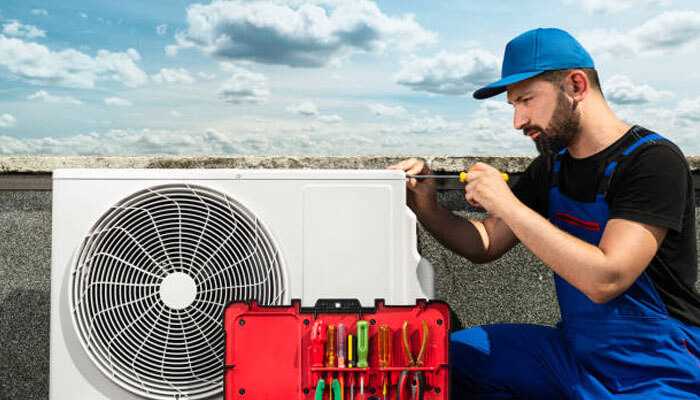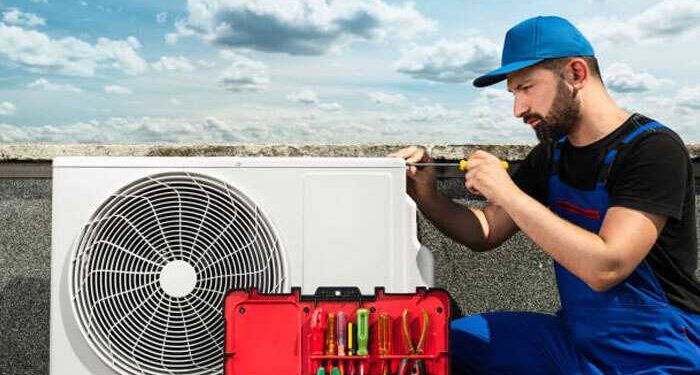Exploring the realm of residential AC repair, this introduction delves into the importance of regular maintenance, common issues faced by homeowners, DIY troubleshooting tips, hiring professional services, and the cost breakdown associated with AC repairs. With a focus on enhancing indoor comfort and energy efficiency, this guide aims to provide valuable insights for homeowners looking to maintain their AC systems effectively.
Continuing with detailed explanations and practical advice, this guide offers a holistic approach to understanding and addressing residential AC repair needs.

Importance of Residential AC Repair
Regular maintenance is crucial for residential AC systems to ensure optimal performance and longevity. Neglecting AC repair in a residential setting can lead to a range of consequences that impact both the comfort of your home and your budget. Faulty AC systems not only compromise indoor air quality but also result in reduced energy efficiency, leading to higher utility bills.
Consequences of Neglecting AC Repair
- Decreased cooling efficiency, resulting in uneven temperatures throughout the house.
- Increased energy consumption leading to higher electricity bills.
- Risk of complete system breakdown, requiring costly repairs or replacements.
Impact on Indoor Air Quality and Energy Efficiency
- Dirty filters and clogged ducts can circulate pollutants and allergens, affecting air quality.
- Leaking refrigerant or malfunctioning components can cause the AC system to work harder, consuming more energy.
- Poorly maintained AC systems can lead to mold growth, further compromising indoor air quality.
Common Residential AC Issues
Residential air conditioning systems can encounter a variety of problems that can disrupt the comfort of homeowners. Understanding these common issues is crucial for timely repairs and maintenance.
Refrigerant Leaks
One of the most frequent issues with residential AC units is refrigerant leaks. This can lead to insufficient cooling and increased energy consumption. The primary reasons behind refrigerant leaks include poor installation, factory defects, or simply wear and tear over time.
Dirty or Clogged Filters
Another common problem homeowners face is dirty or clogged filters. When filters are not cleaned or replaced regularly, they can restrict airflow and reduce the efficiency of the system. This can result in poor air quality inside the home and potential damage to the AC unit.
Thermostat Malfunctions
Malfunctions in the thermostat can lead to inaccurate temperature readings and improper cooling cycles. This can cause discomfort for homeowners and result in unnecessary energy consumption. Issues with the thermostat may stem from electrical problems or faulty components.
Electrical Problems
Electrical problems, such as faulty wiring or capacitor issues, can also plague residential AC units. These problems can lead to system failures, irregular cooling, or even pose safety hazards for homeowners. It is essential to address electrical issues promptly to prevent further damage.
Environmental Factors
Environmental factors, such as extreme weather conditions, can also contribute to AC problems. High temperatures, humidity, and debris buildup in outdoor units can strain the system and lead to malfunctions. Regular maintenance and protection against environmental elements are crucial for the longevity of residential AC units.
DIY Troubleshooting Tips
When it comes to minor AC issues, homeowners can often troubleshoot and resolve the problem on their own. However, it's essential to follow proper steps and safety precautions to avoid any mishaps
.
Checking the Thermostat
- Make sure the thermostat is set to cool and the temperature is lower than the current room temperature.
- If the thermostat runs on batteries, replace them to ensure proper functioning.
- Check for any dust or debris around the thermostat that could be affecting its accuracy.
Changing the Air Filter
- Locate the air filter in your HVAC system and check if it's dirty or clogged.
- If dirty, replace the filter with a new one to improve airflow and system efficiency.
- Regularly changing the air filter every 1-3 months can prevent many AC problems.
Cleaning the Condenser Unit
- Turn off the power to the condenser unit before cleaning to avoid any electrical accidents.
- Gently remove debris, leaves, and dirt from the unit using a soft brush or hose.
- Trim any vegetation around the unit to ensure proper airflow and ventilation.
When to Call a Professional
- If you're not comfortable or familiar with AC systems, it's best to call a professional for repairs.
- For major issues like refrigerant leaks, compressor problems, or electrical issues, always seek professional help.
- Attempting complex repairs without the necessary skills can lead to further damage and safety risks.
Hiring Professional AC Repair Services
When it comes to residential AC repair, hiring a professional service provider can offer several benefits. Not only are they equipped with the knowledge and expertise to accurately diagnose and fix issues, but they can also ensure that the repairs are done safely and efficiently.
Whether you are considering hiring an HVAC company or an independent contractor for your AC repair needs, it is essential to weigh the pros and cons of each option. HVAC companies often have a team of technicians, access to specialized tools and equipment, and may offer warranties on their work.
On the other hand, independent contractors may provide more personalized service, flexibility in scheduling, and potentially lower costs.
What to Look For in a Reliable AC Repair Service
- License and Certification: Make sure the AC repair service provider is licensed and certified to work in your area. This ensures that they have met the necessary qualifications and standards.
- Experience and Expertise: Look for technicians with years of experience in the industry and specialized training in AC repair. This can give you confidence in their ability to handle any issues that may arise.
- Reputation and Reviews: Check online reviews and ask for recommendations from friends or family to gauge the reputation of the AC repair service provider. Positive feedback and satisfied customers are indicators of reliable service.
- Pricing and Estimates: Obtain multiple quotes from different AC repair service providers to compare pricing and services offered. Be wary of unusually low prices, as they may indicate subpar workmanship or hidden fees.
- Guarantees and Warranties: Inquire about any guarantees or warranties offered by the AC repair service provider. This can provide you with peace of mind knowing that you are protected in case of any future issues.
Cost of Residential AC Repair
When it comes to residential AC repair, the cost can vary depending on several factors. Understanding what influences these costs and how regular maintenance can help reduce long-term expenses is essential for homeowners.
Factors Influencing Cost
Several factors can influence the cost of residential AC repair:
- The type and extent of the repair needed
- The age and condition of the AC unit
- The availability of replacement parts
- The expertise and reputation of the HVAC technician
Examples of Cost Ranges
Here are some examples of cost ranges for common AC repair services:
| AC Repair Service |
Cost Range |
| Refrigerant recharge |
$150
$300
|
| Compressor replacement |
$1,500
$2,500
|
| Thermostat repair |
$100
$200
|
Importance of Regular Maintenance
Regular maintenance of your residential AC unit can help reduce long-term repair costs by:
- Identifying and addressing minor issues before they become major problems
- Improving the efficiency of your AC unit, reducing energy consumption
- Prolonging the lifespan of your AC unit, minimizing the need for costly replacements
Closing Notes
In conclusion, this guide has shed light on the crucial aspects of residential AC repair, emphasizing the significance of regular maintenance, the benefits of professional services, and cost-effective strategies to enhance the longevity of AC systems. By following the recommendations provided, homeowners can ensure optimal performance and efficiency from their residential AC units.
Q&A
How often should I schedule maintenance for my residential AC system?
It is recommended to schedule maintenance at least once a year to ensure optimal performance and prolong the lifespan of your AC unit.
What are the signs that indicate my AC system needs professional repair?
Signs such as strange noises, uneven cooling, or frequent cycling on and off indicate a need for professional AC repair services.
Can DIY troubleshooting cause further damage to my AC system?
While DIY troubleshooting can be helpful for minor issues, it's important to know when to seek professional help to prevent exacerbating the problem.
How can regular maintenance help in reducing long-term repair costs for residential AC units?
Regular maintenance helps in identifying and addressing minor issues early on, preventing them from escalating into costly repairs down the line.
 .
.















